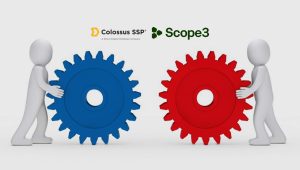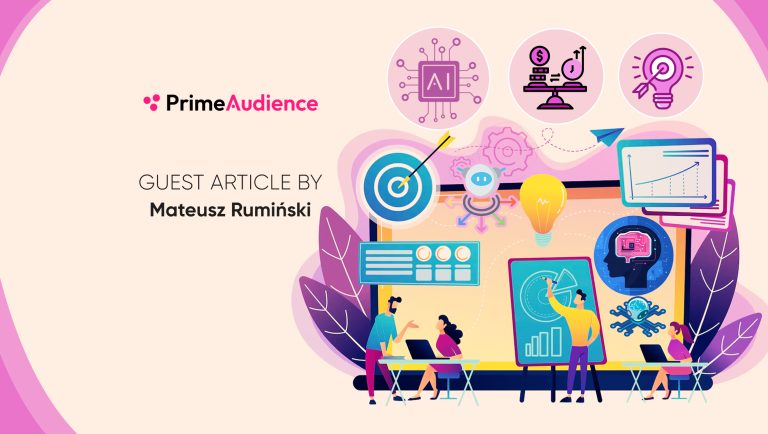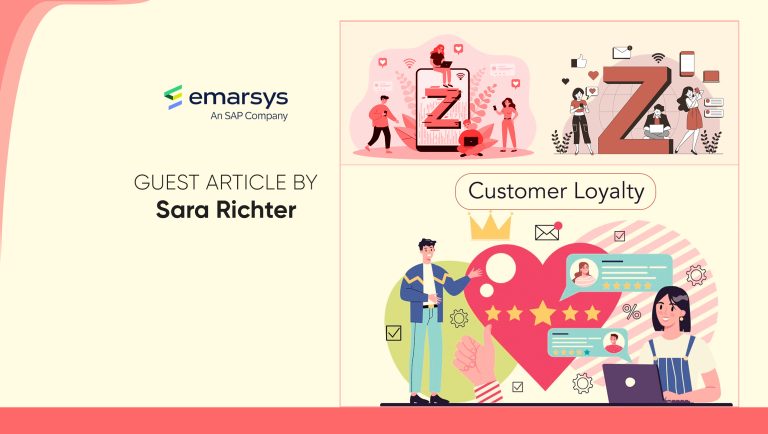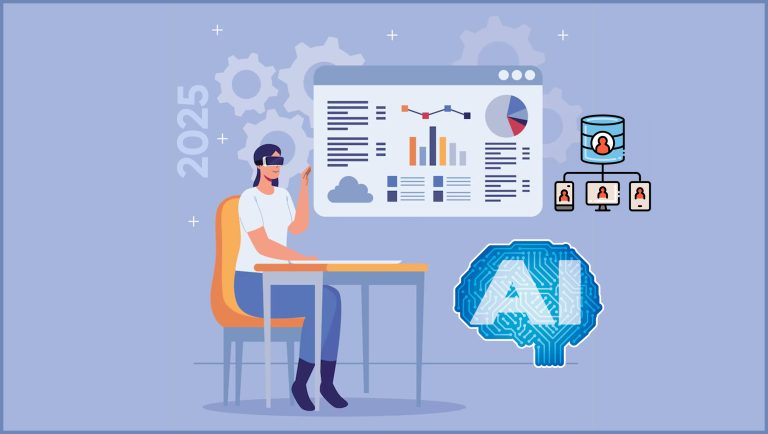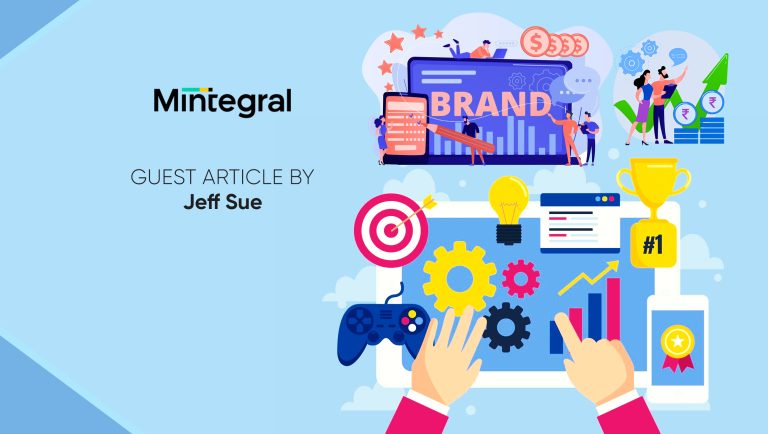Marketing is reaching a tipping point. Over the last few decades, brands across industries have navigated from mass marketing to segmentation, towards one-to-one personalization. Personalization is now at the top of the list of marketing strategies and objectives. In a 2019 study from Researchcape, 98% of marketing leaders from B2B and B2C brands agree that personalization helps advance customer relationships; 85% state that customers now expect it, while 88% cite delivering better customer experiences as the key success driver.
The Dismal State of Personalization…
Unfortunately, only 16% of marketers report being very, or extremely satisfied, with their brand’s personalization efforts. Only 32% of responders believe that any marketers are getting personalization right. It’s easy to understand why when the humble e-mail marketing channel is reported by 78% of marketers as the most personalized channel. Half of the marketers surveyed report that they don’t have sufficient data and insights to drive effective personalization. Consumers are just as disappointed, with only 22% reporting being satisfied with the current level of personalization from brands.
Don’t Blame Digital Technology…
Marketers and their IT support teams cannot blame technology for their inability to execute advanced personalization. The massive normalization and storage capacity for Big Data exists and the algorithms are getting better daily. Data scientists are finally maturing into domain experts with ethical wisdom. Communication and interaction channels are abundant, with in-person and mobile leading the way. Innovating new products and services is a core skill at top brands. Security is an issue for all, but there are better, growing ways to encrypt and secure data, including legitimate blockchain innovations. The technological capabilities for enhancing and scaling personalization are ready, willing and able.
Marketing Technology News: A Decade of Talking Tom: Outfit7 Celebrates Its 10th Anniversary and 10 Billion Downloads
Blame the Current State of Big Data…
The major reason marketers cite for the failure to execute true personalization is the scarcity of data, and most importantly, the lack of accurate, timely, and real-time data. Marketers cite the ability to bring the right sources of data together for personalization as a constant struggle. One-half openly complain that they lack the data and the right insights to drive effective personalization. In a recent study, Deloitte tested how accurate third-party broker data is today. The results were eye-opening. More than 66% of respondents who reviewed their own personal data stated that the third-party data that was collected about them was only 0-50% correct. One-third reported that the data was only 0-25% correct. Basic demographic data was reported by 59% of respondents to be only 0-50% accurate. Only 42% of the study participants reported that the online data collected about them was on target. Less than 25% reported that their online and offline spending data was more than 50% correct. When asked to explain why their data was so inaccurate, they reported that the data was outdated and obsolete. One responder described the data as simply “stale.” Deloitte concluded that their research is not unique; it is the dismal global state of third-party data.
That Leads to the Dismal Failure of Digital Marketing…
The results of inadequate data are obvious, even if completely ignored by marketers and their agencies. A recent report by Smart Insights puts the average click-through rate of all digital ad formats and display ads, at 0.05%. That’s a 99.95% failure rate. To add insult to injury, according to MediaPost, 60% of those clicks are accidental. Consumers are not just annoyed; they are shocked at how badly marketers, digital agencies, and their algorithms, botch predicting their buying needs and intent. Digital personalized ads today are delivered to the wrong person, with the wrong offer, over the wrong channel, at the wrong time, at least 99.97% of the time. Is there any other business metric that fails so thoroughly at such a high cost? Attribution should be replaced with accountability.
Meanwhile, Data Privacy is Getting All the Attention…
Given the dozens of substantiated, continuous data scandals, and all the legal violations of privacy in the news, it is easy to understand why the focus today in Europe and California, among other geographies, is on enacting data privacy, protection, consent and mobility legislation. Even the conservative Business Roundtable is asking for federal privacy legislation. Focusing on privacy is critical, yet it means that marketers, and consumers, are failing to spot the potential benefits of the rising tide of Advanced Personalization. And given that the opportunity is a virtual candy store of mutually beneficial benefits, and unprecedented client/brand relationship building, it would be a shame to miss out on the next generation of personalization.
Under the Radar the Personal Data Economy is Slowly Evolving…
Over the last 18 months, the Luxury Institute has been researching the critical path to advanced personalization for, and with, legitimate brands. The Luxury Institute has interviewed dozens of active entrepreneurs, innovators and investors across the planet, and has conducted secondary research globally on the topic of the rapidly emerging personal data economy. Luxury Institute is currently conducting global affluent consumer research to understand privacy and personalization attitudes and needs. It is important to remember that the original internet was a champion of the individual. The current business model of the internet, which Harvard professor Shoshana Zuboff calls “Surveillance Capitalism”, where personal life-streams of human experience are co-opted through deceptive digital platform user agreements, and sold to brokers to profit from digital ads, is only one possible business model. It may be the prevalent model in digital business today, but it is self-destructing, and will be rendered obsolete by ethical, innovative entrepreneurs and brand marketers who will flip the data control and access model on its head. The winners will be all legitimate buyers and sellers in all product and services categories.
Marketing Technology News: SocketLabs Names Keith Hontz as CEO
The Critical Path to Advanced Personalization is Customer Control…
The X factor for achieving Advanced Personalization is best described by digi.me founder Julian Ranger, a British tech entrepreneur who has been busy architecting part of the ecosystem of the future of personalization. According to Ranger, the obvious, elegant solution to fixing the current toxic digital ad tech model is to return data control to the individual and continuously aggregate rich data, in real time, at the level of the human being. This is the only way for marketers to achieve deep, relevant customer insight and personalization, in real time. By assisting the individual consumer to access and control all their streams of personal data such as health, fitness, financial, search, transactional, consumption, location, etc., in personal data stores, we can ensure privacy, protection, and complete accuracy. Wherever individuals choose to store their data, it can be protected with encryption and other safeguards, yet, be structured in optimal formats to make it available for analyzing, sharing, selling, donating and exchanging in order to generate massive exponential innovation and value for the entire ecosystem.
With permission-based access to normalized, rich, relevant, accurate, and timely customer data, legitimate, ethical brands can now respectfully send requests to customers for select, relevant, protected, predictive, or real-time data in order to personalize for them at advanced one-to-one levels. Brands can target communications with relevance and begin to deliver not just one-to-one marketing, but also begin to continuously innovate and deliver tailored real-time products and services solutions that build mutually profitable long-term relationships. Brand ambassadors will now have information at their fingertips to enable and empower them to deliver memorable customer experiences with unprecedented expertise and emotional intelligence, in the moment.
Use Cases Will Soon be Tested…
Imagine that all the continuously updated, normalized genetic, medical, exercise, wellness, dietary consumption, travel and other data related to an individual’s health and well-being are aggregated in one database, or app, with full individual customer control, privacy and consent. Personal analytics and human expertise are applied, either in their personal data store, or after the data is securely transported to the database of their trusted medical services provider. On a permission-based basis, the algorithms, assisted by a team of human experts, develop a set of recommendations and reminders that will help individuals improve any one of many medical agreed-upon KPIs and objectives. Potential health or safety risks are detected quickly, and emergency care is arranged, as needed, with partners anywhere in the world. The recommendations are updated daily, based on medical condition and lifestyle changes, in order to serve the best health and wellness interests of each individual.
Or, imagine that the young daughter of a top-tier hotel loyalty program member is traveling, taking a year of vacation after college graduation, to explore four continents. She will visit major cities and historical towns in Europe, Asia, Latin America and Africa. Through the global power and resources of a multi-brand hospitality conglomerate, and its partners, the customer travels for the year on mom’s points program, as well as paid room nights. The young traveler, by consent, allows certain select demographic, medical, transportation, location, social media, consumption, and other data to be available in real-time to an assigned expert services team across the world, in different time zones, for the sole, restricted purpose of fully customizing the trip in real time. This includes personalizing the optimal hotel properties, providing quiet, fragrance-free, well-lit rooms, allergy-sensitive dining, local musical entertainment, and special-access to coveted monuments with special expert guides, as well as smart, non-intrusive security measures. Luggage transport is arranged seamlessly for the traveler. The itinerary and comprehensive services delivered by the hotel using AI and human experts are adjusted in real time based on the changing desires and needs of the customer.
Marketing Technology News: Bigtincan Acquires XINN, Adding the Leader in Real Time Document Automation to Its Sales Enablement Automation Platform
Or, imagine that a family carries insurance for their homes, autos, accident, lives, and other protection. The insurance provider requests that they be able to have legal, ethical protected access to select, relevant data that will help the company to develop personal protection for each member of the family in real time. The mother is the CEO of a company who travels for business 50% of the time. Because the insurer has permission-based access to the CEO’s location data and travel itineraries, specialized teams, assisted by algorithms, can create insurance coverage in real-time for special occasions. If the mother is required by circumstances to board a plane from a less-well-known airline to a remote work location, the insurance carrier is prompted, and immediately increases travel accident coverage to the maximum level. If the family goes on a skiing vacation to Aspen, all the family members, as they enter the ski lift, have their accident insurable coverage increased according to their level of expertise and the type of terrain on which each is skiing. Should anyone get sick, the insurance company can arrange best-in-class local medical care, plus medical transportation back home.
These hypothetical examples are impossible to conceive, design and execute, without the full control and consensual sharing of relevant personal data by the individual customer. In each case, the marketer can learn the behavior-based path to purchase for their offerings instead of relying on reported data, or by pretending that a “sales funnel” is even remotely reflective of reality. This special data-sharing relationship enables access to relevant, accurate, timely personal data, in real time. Most of the current frustrations and risks that marketers and consumers confront regarding bad data, privacy and personalization disappear. The new challenges are about which brand is trusted most, and which has the best mix of people, analytics, creativity, innovation, partnerships, and emotional intelligence capabilities to deliver Advanced Personalization. The opportunities to innovate and create mutually beneficial functional, emotional and economic value are exponential for savvy brands. Advanced Personalization enables trusted client relationships that deliver scalable, profitable, unimagined levels of performance.
The capabilities to execute Advanced Personalization are available today. The Luxury Institute is conducting the educational dialogue to work with several leading brands, in piloting small and large-scale Advanced Personalization research and innovation projects. Enlightened brand leaders crave the opportunity to have legal, ethical access to consumer data that will enable them to radically personalize for their customers. Customers crave safe, secure, ethical personalization and are willing to pay for it. The process requires legal, technical and business expertise, and it can be navigated surgically and effectively. If you would like to learn more about how to execute an Advanced Personalization pilot project, contact the Luxury Institute for a confidential consultation.
Marketing Technology News: Four Ways to Improve Your Facebook Video Marketing











